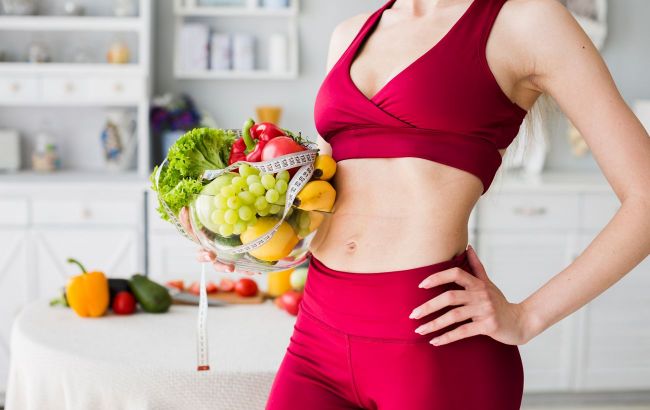5 simple tips on how to lose weight in spring
 Illustrative photo (Freepik)
Illustrative photo (Freepik)
People tend to be less active in winter, consuming more carbohydrate-rich foods, warm beverages, and indulging in holiday sweets and candies. Which is why it's normal that some people may gain a few extra pounds during the cold season.
Dietitian Natalia Samoilenko shared some tips on how to lose those extra pounds in spring.
The expert advises against starting following a strict diet as soon as the sun starts shining and you feel like going for a stroll in lighter clothing and shoes. In other words, you don't have to only eat salads. However, it's worth paying attention to five important pieces of advice.
Don't skip meals, especially breakfast, as it kick-starts metabolism after a night of fasting. Skipping breakfast can lead to metabolic and hormonal effects that make it harder to choose healthy foods throughout the day and leave you with less energy.
Cut out snacks for a while. Frequent snacking slows down metabolism and stimulates constant production of gastric juice, keeping us constantly hungry. So, revert to a three-meal schedule for some time. Meal breaks should be "clean" of food. Also, say "no" to sweet snacks, coffee with milk, or a handful of raisins.
Remember the rules of a balanced plate. Half of your plate should be vegetables, berries, or fruits. A quarter should be protein (eggs with yolk, fish, poultry, lean meat, soy, and legumes such as lentils, chickpeas, peas). All this is accompanied by dressing or adding healthy fats such as olive, flaxseed, or walnut oil, sesame, flaxseeds, avocado, nuts, pumpkin seeds, olives, and cod liver. But be careful with fats.
Eat slowly. It takes 20-30 minutes for the human body to release hormones that induce feelings of fullness. If you eat quickly, your body won't have time to signal that you've had enough, leading to overeating, feeling heavy in the stomach, and weight gain.
Move more. Even a short walk in the fresh air can help you shed those extra winter pounds.
"And finally, a little trick. Keep tempting food out of sight, especially snacks. You'll eat less if getting food requires more effort," advises the dietitian.
This material is for informational purposes only and should not be used for medical diagnosis or self-treatment. Our goal is to provide readers with accurate information about symptoms, causes, and methods of detecting diseases. RBС-Ukraine is not responsible for any diagnoses that readers may make based on materials from the resource. We do not recommend self-treatment and advise consulting a doctor in case of any health concerns.

